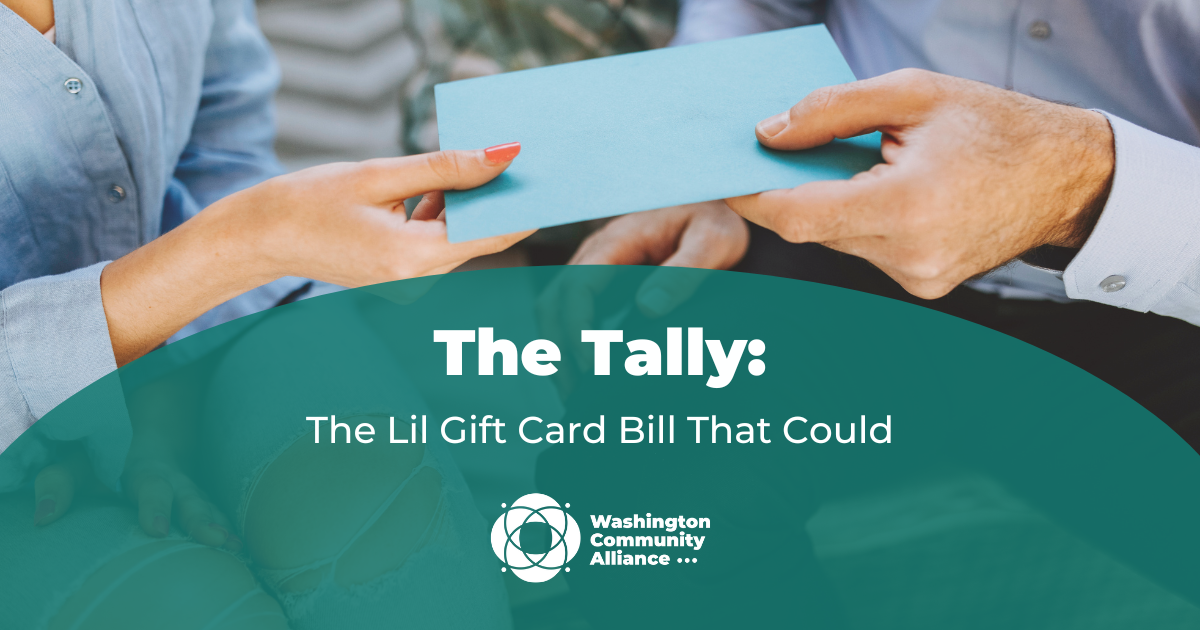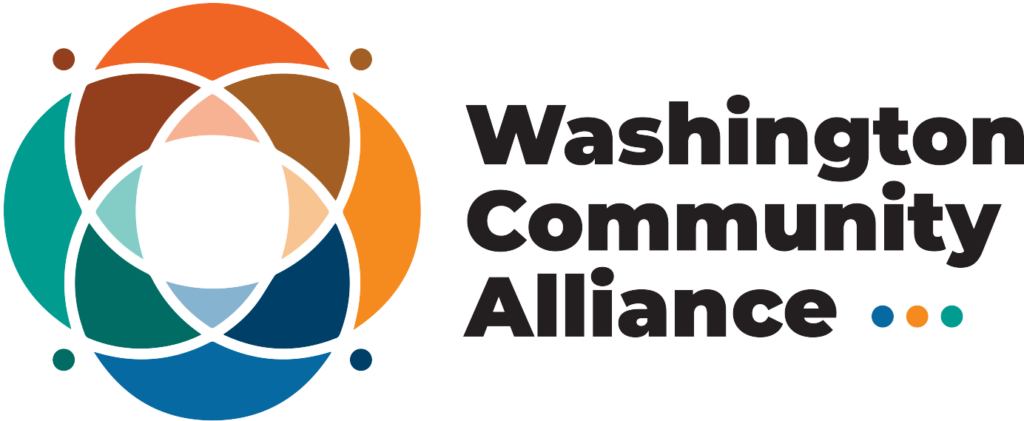
Sup Baller—
This week was house of origin cutoff which means another huge swath of bills just croaked, including a few more of ours. If you’re counting, today we are three weeks out from Sine Die. It’s grind time. Bills are now in their opposite chambers and the legislature is moving quickly to keep them alive.
Meanwhile, we’ve been hearing the House and Senate budgets are dropping soon. Hit those action buttons and then scroll to read up on a hot new revenue proposal we’re watching this session. 💰
💰 The Gift Cards That Keep On Giving 💰
In 2004, some of the largest retail corporations incorporated in Washington—including union-busting Starbucks—successfully lobbied for a legal loophole allowing them to pocket their customers’ unspent gift card balances. These massive profit-maximizing corporations currently keep hundreds of millions in unspent customer dollars every year, counting that cash in their quarterly earnings reports, which adds to pure revenue, increasing shareholder value, and since the cards go unclaimed, become pure profit.
This loophole, incentivizes companies incorporated in our state to make it difficult for consumers to use or cash out gift cards. But HB 2095/SB 5988 would close that loophole. It requires the biggest corporations registered in WA to return money from unspent gift cards to the public good after 3 years, and allow consumers to still spend these gift cards.
Why it matters
Closing the gift card loophole would direct millions of dollars into the state’s general fund for schools, parks, and other public investments. If this law had been in effect in 2022, Starbucks and Nordstrom would have sent $252 million of abandoned gift card balances to the state’s unclaimed property fund. About half, $151 million, would go unclaimed and be eligible for the state to spend on materially improving the lives of Washington residents.
At the beginning of session, a lot of hopes were pinned on this bill to fund new and expanded services for Washingtonians. It was supposed to be a great source of revenue for the state to spend on a lot of important bills (like several policies in 🐐 Our Top Four 🐐) But as we covered last week, legislators are feeling nervous and pinched in a short legislative session.
What happened
Reality set in and the bill hasn’t been tied to anything even though it’s common sense legislation we hope will pass. Revenue bills aren’t always tied to programs or services, especially when they are first introduced. This can be for a couple reasons:
Coalitions are made up of broad interests and often do not have full consensus when they represent different interests. Therefore deciding on where to spend revenue is often very difficult to do in coalition.
Legislators, generally speaking, want the flexibility to spend new revenue money on their own priorities so they don’t like bills that tie revenue to specific services for public good.
The Republican right has a long, pervasive history of uncoupling government revenue from the services that money is funding.
The looming threat of the six citizen initiatives is making lawmakers even more squirmy because three initiatives, in particular, would have a significant impact on existing services and programs. The initiatives aim to repeal the Climate Commitment Act and the capital gains tax which would cut state revenue by several billion dollars.
It doesn’t have to be this way
It’s bad to snip the ties between revenue and services. There is so much research that shows this—including much of the progressive tax research in Washington state over the last few decades. People need to know where their tax dollars are going, and not just for the sake of transparency but to make material the abstract concept of things like “public goods” and “taxes” and even “services.”
No matter what issue or bill you’re working on, the task we should all be working on is continuing to tie revenue to outcomes. If we don’t, we feed right into the Right’s tactics of abstracting and staving our government.
Which is to say, closing the gift card loophole would not just contribute millions of dollars to the state’s general fund. It could also fund a Working Families Tax Credit expansion, a universal free school meals program, unemployment insurance for undocumented workers, and more. I’ll say it. You should say it. We should all say it: progressive revenue helps us create, expand, and maintain progressive programs that voters want.
What do you think? Have any questions? Tweet us your thoughts @WACommAlliance.
Keep up on the action and opportunities to get involved through our legislative newsletter, The Tally.

